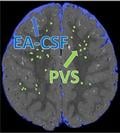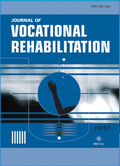AUCD Network Press Releases

4/17/2024
Alzheimer's Disease Progresses Faster in People with Down Syndrome
Nearly all adults with Down syndrome will develop evidence of Alzheimer's disease by late middle age. A new study by researchers at Washington University School of Medicine in St. Louis shows that the disease both starts earlier and moves faster in people with Down syndrome, a finding that may have important implications for the treatment and care of this vulnerable group of patients.

4/17/2024
Epilepsy Drug Prevents Brain Tumors in Mice with NF1
A drug used to treat children with epilepsy prevents brain tumor formation and growth in two mouse models of neurofibromatosis type 1 (NF1), according to a study by researchers at Washington University School of Medicine in St. Louis. NF1 is a genetic condition that causes tumors to grow on nerves throughout the body, including the optic nerves, which connect the eyes to the brain.

4/11/2024
Special Issue Explores the Complex Genetic Landscape Around Diverse IDDs
The IDDRC network has completed their 2023 publication section in the Journal of Neurodevelopmental Disorders focused on "Etiological heterogeneity, pleiotropy, and polygenicity in Intellectual and Developmental Disabilities (IDDs)". The issue includes seven new publications from IDDRC investigators across the country.

1/10/2024
University of Massachusetts Boston Institute for Community Inclusion Partners with the International Disability Alliance and the African Disability Forum on International Fellowship Program
The Institute for Community Inclusion (ICI) at the University of Massachusetts (UMass) Boston, in collaboration with the International Disability Alliance (IDA) and the African Disability Forum (ADF), has been awarded a grant from the US Department of State to launch the third round (FY 2023) of the Professional Fellows Program on Inclusive Civic Engagement. This program, designed for emerging leaders in East Africa, aims to facilitate exchange and implementation of best practices for disability-inclusive civic engagement.

1/9/2024
Researchers Find Possible Neuromarker for 'Juvenile-onset' Batten Disease
New research from the University of Rochester Medical Center, an AUCD IDDRC Network site, suggests an easy-to-measure brain process may be a target or biomarker in measuring treatment outcomes in clinical trials for patients with Batten disease.
2023 Press Releases

12/19/2023
Enlarged Spaces in Infant Brains Linked to Higher Risk of Autism, Sleep Problems
For the first time, researchers at the UNC School of Medicine's UNC Psychiatry, an AUCD IDDRC Network site, discovered that infants with abnormally enlarged perivascular spaces have a 2.2 times greater chance of developing autism, compared to infants with the same genetic risk. Their research also indicated that enlarged perivascular spaces in infancy are associated with sleep problems seven to 10 years after diagnosis.

9/29/2023
The Wyoming Institute for Disabilities Wins 2023 ECHO Excellence Award
Nationwide, just over 19 percent of the Department of Education's accredited institutions have taken advantage of a digital documents course developed at the Institute for Disability Research, Policy & Practice. Faculty and staff from all the universities in the Utah System of Higher Education have taken the course, which helps them provide accessible digital materials to their students.
![A black and white hand of an older adult is grasping the tiny hand of an infant on a background that is blue and shows a model of DNA in the background. [image of fxtas statistics] Graphic illustration showing that 1 in every 450 males and one in e A black and white hand of an older adult is grasping the tiny hand of an infant on a background that is blue and shows a model of DNA in the background. [image of fxtas statistics] Graphic illustration showing that 1 in every 450 males and one in e](/images2/photos/iddrc/202309KansasIDDRC_FXTAS2_400W_sm.jpg)
9/15/2023
Researchers to Identify Key Brain and Behavioral Changes in Aging Women with Premtuations of the Fragile X Gene, FMR1
First documented two decades ago among a small group of men who had grandchildren with Fragile X Syndrome, Fragile X-associated Tremor/Ataxia Syndrome (FXTAS) has more recently been identified in women. Researchers at the University of Kansas Life Span Institute, Kansas IDDRC, and colleagues now are working to learn more about its effects in women.

8/9/2023
Cognitive Function in Down Syndrome-associated Alzheimer's Focus of Grant
NIH-supported study lays groundwork for Alzheimer's clinical trials involving people with intellectual disabilities
Nearly every person with Down syndrome eventually develops Alzheimer's disease. Yet, people with the syndrome routinely are excluded from Alzheimer's clinical trials, with the help of an $11 million grant from the National Institute on Aging, part of the National Institutes of Health (NIH), Associate Professor of Neurology Jason Hassenstab, PhD, from Washington University School of Medicine, St. Louis IDDRC, is looking to address this.

7/19/2023
Rett Syndrome Drug Studied at Vanderbilt Kennedy Center (TN IDDRC, UCEDD, LEND) Approved for Patients
The first drug to treat the symptoms of Rett syndrome was recently approved, following a Nature Medicine study publishing results from the pivotal phase 3 LAVENDER study led by investigators from the Vanderbilt Kennedy Center (TN IDDRC, UCEDD, LEND) to evaluate efficacy and safety of trofinetide.

6/12/2023
Vanderbilt Kennedy Center (TN IDDRC, UCEDD, LEND) UCEDD Director Elise McMillan to Retire
After 28 years of working to improve the lives of individuals with intellectual and developmental disabilities (IDD) and their families, Elise McMillan, J.D., has announced she will retire from the Vanderbilt Kennedy Center (VKC) (TN IDDRC, UCEDD, LEND) in June 2023. McMillan currently serves as the director of the VKC University Center for Excellence in Developmental Disabilities (VKC UCEDD), director of Community Engagement and Public Policy team, and senior lecturer in Psychiatry & Behavioral Sciences.

6/12/2023
Vanderbilt Kennedy Center (TN IDDRC, UCEDD, LEND) Welcomes Pablo Juarez and Julie Lounds Taylor as New UCEDD Co-directors
The Vanderbilt Kennedy Center (TN IDDRC, UCEDD, LEND) announces new leadership for its University Center for Excellence in Developmental Disabilities (VKC UCEDD). Julie Lounds Taylor, Ph.D., and Pablo Juarez, M.Ed., BCBA, LBA, will succeed Elise McMillan, J.D., who officially retires June 30, 2023.

5/25/2023
Researchers Call for Systemic Changes to Improve Career Prospects of Young People with Disabilities
A deeper level and different kind of coordination, collaboration, and cooperation are needed to narrow the gap in employment opportunities between youth and young adults with and without disabilities. Experts present strategies to challenge the status quo that young people with disabilities face in the transition from school to employment in a special issue of the Journal of Vocational Rehabilitation.

5/9/2023
Western Carolina University University Participant Program First Postsecondary Program for Students with Intellectual Disability to be Accredited by New Agency
The Institute for Community Inclusion's (ICI) Think College and the Inclusive Higher Education Accreditation Council (IHEAC), a new accrediting agency for postsecondary programs for students with intellectual disability (ID), jointly announced today that the Western Carolina University (WCU) University Participant (UP) Program is now fully accredited for the next seven years. The WCU UP program is the first program to be accredited by the council.

4/24/2023
Think College Launches Public Awareness Campaign to Expand College Access for Students with Intellectual Disability
Think College, a center at the University of Massachusetts Boston dedicated to expanding college options for students with intellectual disability, announced today the launch of its public awareness campaign, Think Higher. Think College. The campaign aims to expand college access for students with intellectual disability (ID) by ensuring students explore a variety of college options during transition planning, increasing the number of institutions of higher education offering programs for students with ID, and preparing students for college while in high school.
4/5/2023
ICI's Think College Launches Accreditation Agency for Inclusive Higher Education
Think College, a center within the Institute for Community Inclusion (ICI) at the University of Massachusetts Boston, announced the launch of the Inclusive Higher Education Accreditation Council (IHEAC), a new accrediting agency for inclusive postsecondary programs for students with intellectual disability (ID).

3/20/2023
Imaging Tech Produces Real-time 3D Maps of Uterine Contractions During Labor
Researchers at Washington University School of Medicine in St. Louis have developed new imaging technology that can produce 3D maps showing the magnitude and distribution of uterine contractions in real time and across the entire surface of the uterus during labor. Building on imaging methods long used on the heart, this technology can image uterine contractions noninvasively and in much greater detail than currently available tools, which only indicate the presence or absence of a contraction.

3/6/2023
Autism Combined with High IQ Increases Risk of Suicidal Thoughts
Unexpected finding raises concern for twice exceptional (2e) youth
Twice exceptional youth-children who have a diagnosis of autism and who also have exceptional cognitive ability-are at increased the risk of suicidal thoughts, according to a recent study by researchers at the University of Iowa Hawkeye Intellectual and Developmental Disabilities Research Center.

3/2/2023
Through the eye of the beholder
Researchers find people with autism process illusory shapes differently
A study recently published in the Journal of Neuroscience, lead by researchers at the IDDRC at the University of Rochester, finds the process in our brain that allows us to see visual distinctions-like how the empty space between four Pac-Man shaped figures can make a square-may not be happening the same way in the brains of children with autism spectrum disorder. They may not see the square at all. It suggests that something is going awry in the feedback processing pathways in their brain.

2/15/2023
Michigan Developmental Disabilities Institute (MI UCEDD) Receives Grant to Support Aging Caregivers of Persons with Intellectual and Developmental Disabilities
The Michigan Developmental Disabilities Institute (MI UCEDD) at Wayne State University has received a two-year, $400,000 grant from the Michigan Health Endowment Fund. The Hope for Aging Caregivers project will work to improve the lives of aging family caregivers of adults with intellectual and developmental disabilities (I/DD).

2/9/2023
New Imaging Technique Reveals Circulation Patterns in Developing Brain
Researchers at Washington University School of Medicine in St. Louis, an AUCD IDDRC, created a new technique for tracking circulation patterns of fluid through the brain and discovered, in rodents, that it flows to areas critical for normal brain development and function. Further, the scientists found that circulation appears abnormal in young rats with hydrocephalus, a condition associated with cognitive deficits in children.

2/8/2023
Federally Funded Studies into Treatment for Chronic Conditions Overlook Efficacy in Adults with Autism, Vanderbilt Kennedy Center (TN IDDRC, UCEDD, LEND) Research Finds
Physical health disparity conditions in autistic adults have not been the focus of any research funded by the U.S. National Institutes of Health (NIH) in the last four decades, an analysis of a federal database found. Using the NIH Research Portfolio Online Reporting Tools Expenditures and Results (RePORTER) database to determine whether the NIH has funded any research related to physical health disparity conditions in autistic adults, Vanderbilt Kennedy Center (TN IDDRC, UCEDD, LEND) researcher T.A. Meridian McDonald, Ph.D., used 30 separate searches to discover that "autism" is often used as a key term - not the target population. Results of the study are published today in the Journal of Autism and Developmental Disorders (JADD), a top autism research journal.

1/17/2023
Zebrafish Advance as a Model Organism for Fragile X Syndrome
Fragile X Syndrome is the most common inherited form of autism, caused by variants in the FMR1 gene. Scientists have developed animal models of the disorder to better understand the consequences of the genetic mutation and to see if they can intervene. In a recent study in The Journal of Neuroscience, Geoffrey Goodhill, PhD, Professor of Neuroscience and Developmental Biology at Washington University School of Medicine, and his team describe the utility of zebrafish larvae in recapitulating features of Fragile X.

1/10/2023
Spontaneously arising variants in FRMD5 gene are associated with a novel neurological disorder
A study led by Dr. Hugo Bellen, investigator at the Jan and Dan Duncan Neurological Research Institute (NRI) at Texas Children's Hospital (TCH) and distinguished service professor at the Baylor College of Medicine (BCM), reports de novo variants in a gene involved in regulating cellular motility to be the underlying cause of a new neurological disorder characterized by intellectual disability, motor dysfunction, seizures, abnormal eye movements etc.







